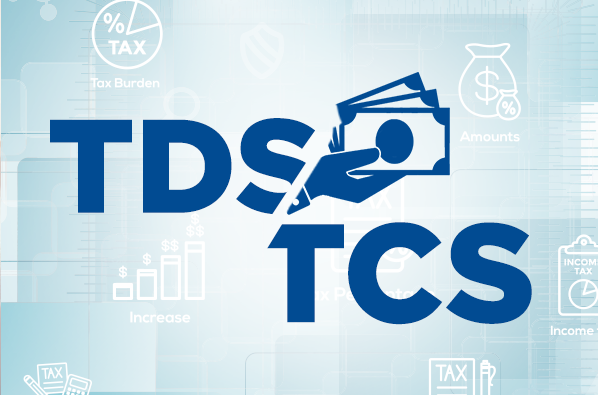Difference Between TDS and TCS

The Government of India collects direct and indirect taxes from the citizens and corporates. Taxes are one of the primary income sources for the government, and the money collected is used for developing infrastructure facilities. While direct taxes are levied on the income that business entities and individuals earn, indirect taxes apply to specific goods and services.
Tax Deducted at Source or TDS, and Tax Collected at Source or TCS are the two of the most popular types of indirect taxes. Many people get confused about these taxes and use the terms interchangeably. However, TDS and TCS are distinct and serve different purposes.
Let us look at the differences between tax deducted at source and tax collected at source.
Collection Source
Tax deducted at source is a type of indirect tax that companies or business entities deduct when they make a payment to an individual above a certain threshold. The payment can be in the form of salary, rent, professional fees, commission, interest, brokerage, winnings, etc.
On the other hand, TCS is an indirect tax that the sellers collect from the buyers. According to the Indian Income Tax Act, 1961, TCS is applied to purchase only specific goods such as timber, wood, minerals, scrap, etc.
Collection/deduction Responsibility
Deducting the TDS is the responsibility of the person who makes any payment, i.e., covered under the gamut of indirect taxes. The person making the payment must deduct the applicable TDS amount from the actual payment amount and deposit it with the IT department.
In the case of TCS, the person selling the products covered under the gamut of indirect tax must collect the tax from the buyer and deposit it with the income tax department.
Applicable tax rate
Another significant difference between tax deducted at source and tax collected at source is the tax rate. The TDS rate differs based on the type of payment made. Similarly, the TCS tax rate varies based on the type of goods sold.
Let us understand the TDS and TCS tax rates with a few examples:
| Payment Type | TDS Rate |
| Salary | As per the usual income tax slab |
| Rent above 2.4 lakhs | 10% for building and land, 2% for machinery |
| Winnings on lottery, puzzle, horse race above ₹10,0000 | 30% |
| Product Type | TCS Rate |
| Timber wood | 2.5% |
| Motor vehicle worth more than ₹10 lakhs | 1% |
| Scrap | 1% |
| Alcohol | 1% |
The due date for depositing tax
Business entities that deduct TDS must deposit the tax amount with the IT department every month. In most cases, the due date is the 7th day of the following month, in which the tax is deducted.
Sellers that collect TCS must deposit the tax amount with the income tax department within seven days of the following month in which the tax was collected. Additionally, the sellers must compulsorily submit TCS returns every three months.
Penalty for not depositing tax with the income tax department
If the business entity fails to deposit the TDS amount with the income tax department within the prescribed deadline, i.e., the 7th of every month, the IT department levies a penalty of 1.5% simple interest per month on the tax amount payable. Also, if the business organisation fails to deduct the TDS from the payments made to the individuals, a penalty of 1% per month will be applied.
Similarly, if the sellers fail to pay the TCS or pay the amount late, the IT department levies a penalty of 1% of the tax amount. If the seller is a serial offender, they may face other legal consequences, including imprisonment of up to seven years.
Final Word
Now that you know the differences between TDS and TCS don’t confuse them for both to be the same. Knowing the exact differences between the two will help you be tax compliant in a better way.





